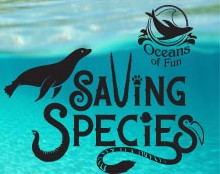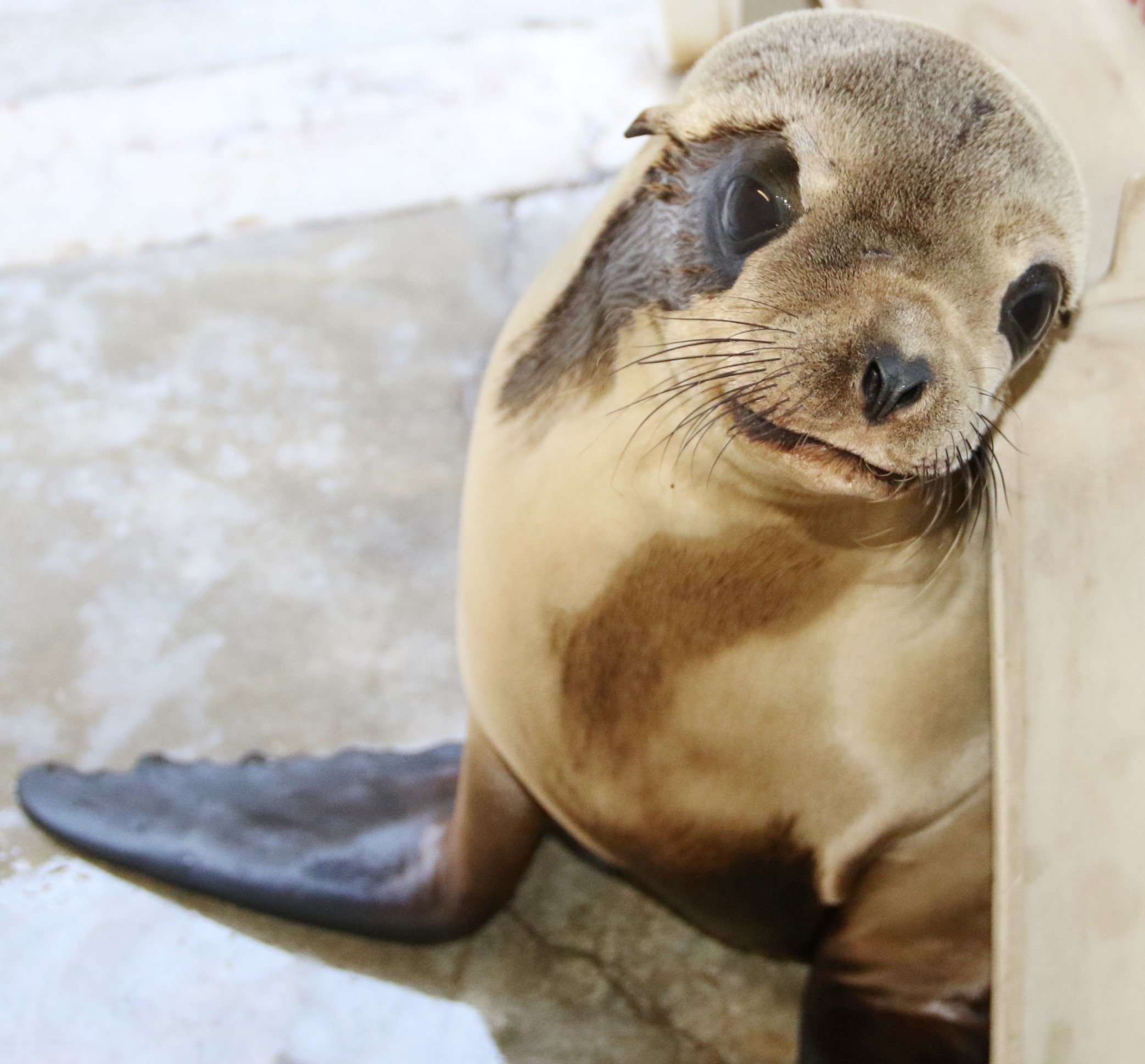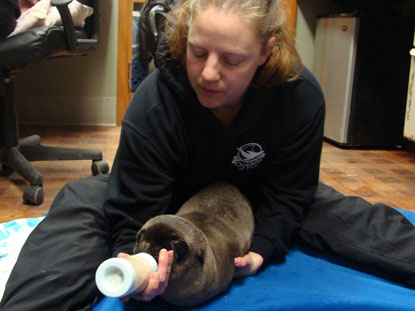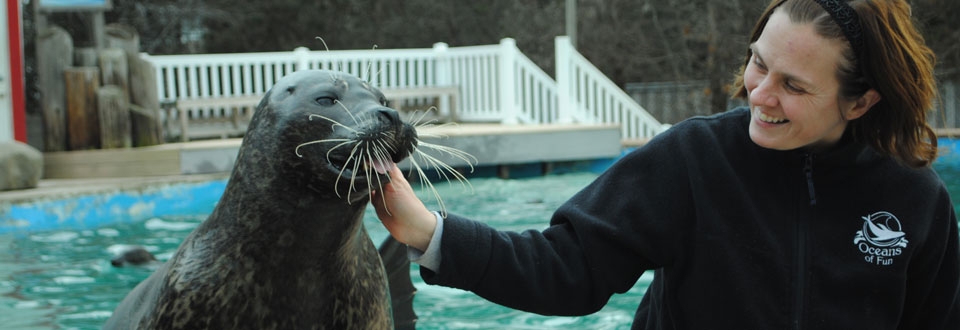
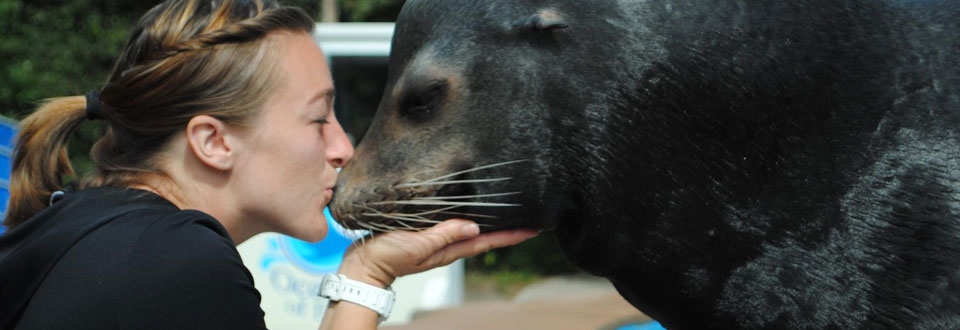
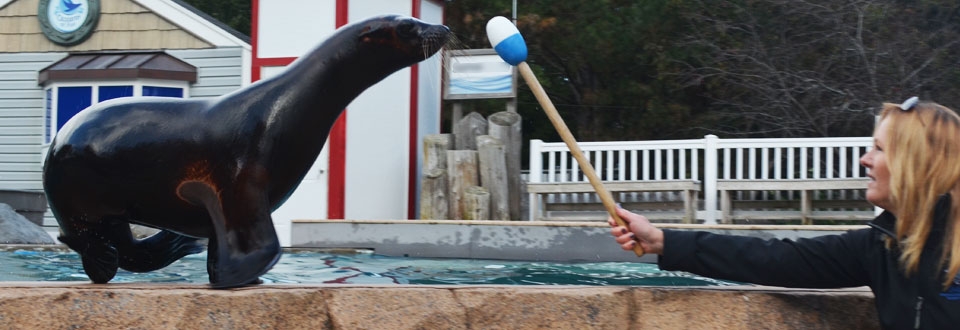
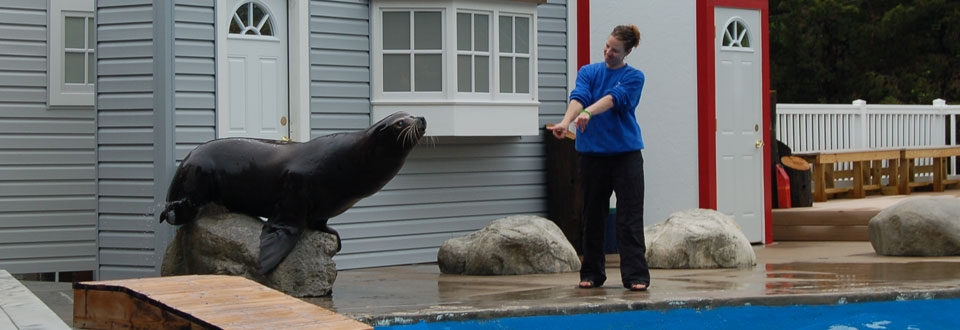
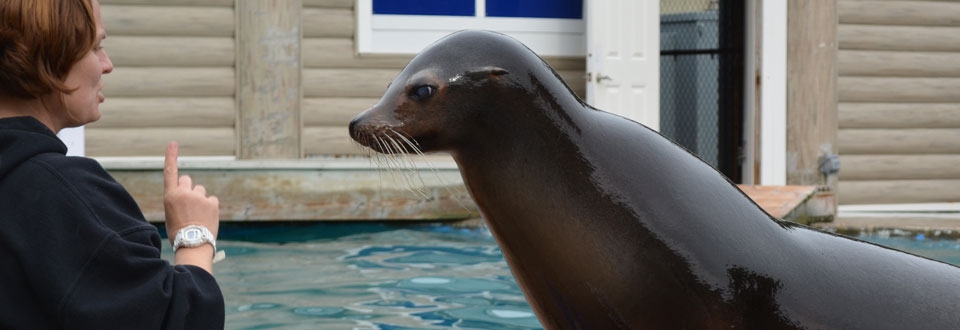
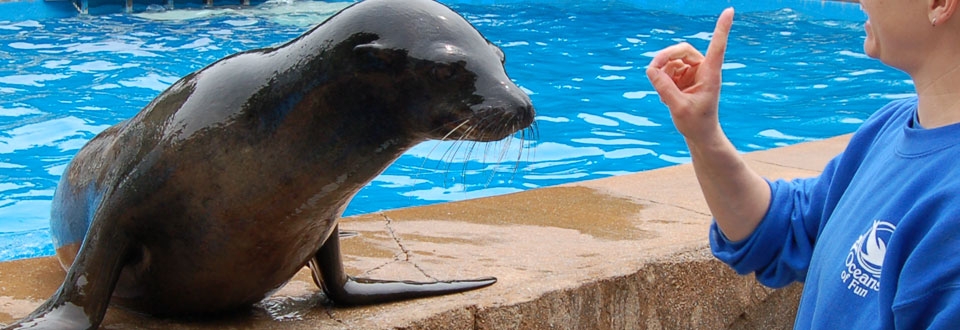
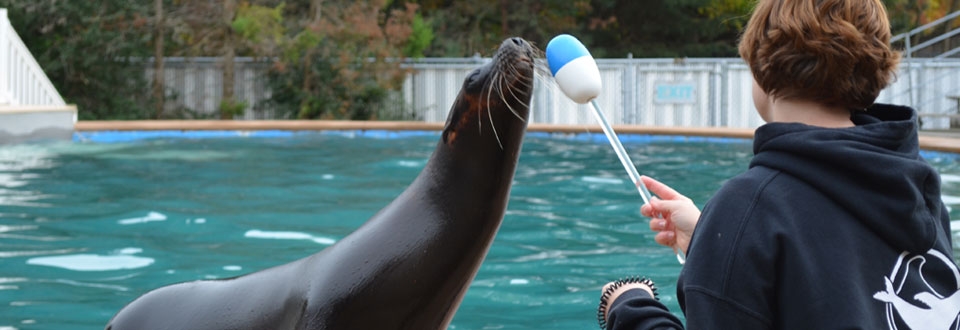
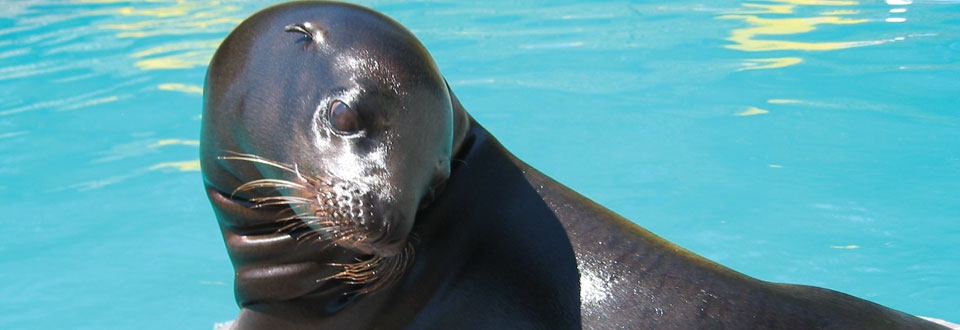
Career Information
 Pursuing a career working with animals is a very rewarding experience which is also full of challenges. These careers require passion, dedication and a drive to succeed. To aid in your success, we encourage you to pursue an educational path focused on the sciences and to gain experience working with animals and people.
Pursuing a career working with animals is a very rewarding experience which is also full of challenges. These careers require passion, dedication and a drive to succeed. To aid in your success, we encourage you to pursue an educational path focused on the sciences and to gain experience working with animals and people.
There are two main components to making a career in the animal care field a reality: education and practical hands-on experience. Education is very important and obtaining a degree is beneficial to career advancement. Knowledge in the sciences and psychology will provide an understanding of animal behavior, conservation and research that will help you succeed throughout your career.
In this field, hands-on application is vitally important as animal care is not something to be learned in a textbook. Animal care requires a multitude of skills and competencies that can be learned through internships and volunteer opportunities.
This career path will take dedication, focus and determination. Take the opportunity to embrace an intern or volunteer position to explore the field and lifestyle to discover if this career choice is the right one for you!
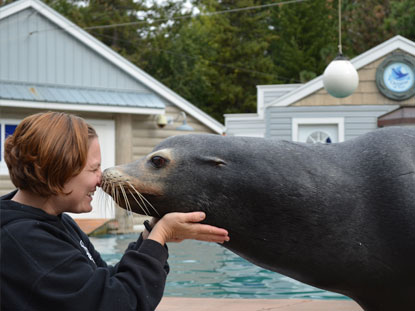 What You Didn’t Know About Becoming an Animal Care Specialist
What You Didn’t Know About Becoming an Animal Care Specialist
There are many aspects to a career in the animal care field that may come as a surprise. These careers are full of hard work, long hours and require more than just fun and games with the animals under your care. Behind the glitz and glamour associated with animal careers are hardworking, determined animal care specialists who dedicate their lives to the health and safety of the animals in their care.
There is a tremendous amount of work that occurs behind the scenes at every animal facility. As a trainer, you will be responsible for the day to day care of your animals. Each day is structured around the mental stimulation, physical exercise, social requirements and facility care that are necessary to provide animals the healthiest lifestyle and environment possible. This includes performing daily cleaning tasks, diet preparation and providing environmental enrichment. Your day may involve scrubbing each animal environment for sanitation, bucketing hundreds of pounds of fish for animal diets or SCUBA diving a pool to perform facility maintenance.
Every animal requires individual attention and each animal must be evaluated daily to ensure all behavioral, social, mental and physical needs are met. To provide these important aspects of care, animal trainers and keepers dedicate long hours providing whatever is necessary to maintain each animal’s well-being. At times, animals may require medical care or have babies which results in 24 hour around the clock care. The animals do not know the meaning of holidays or vacations and their needs are a priority in the life of an animal care specialist. Animal care specialists know that their schedules will vary and there are likely to be a few sleepless nights ahead!
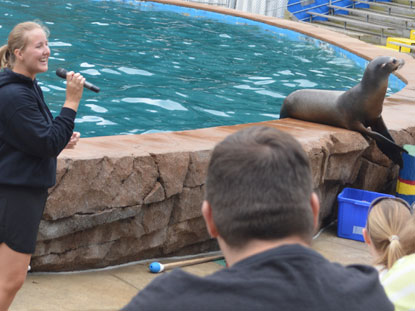 Public Speaking
Public Speaking
Many people believe that a career in the animal field only involves working with animals. In most cases, these positions actually require a substantial amount of public interaction and presentation. It is very important to become comfortable speaking in front of large groups and learn presentation techniques to help set you apart from other applicants.
The power of voice is of great value in all animal care fields including the performance arena, zoos, aquariums and positions in government agencies. Members of the animal care field are united with a common goal of providing quality animal care and valuable conservation education to groups of all ages. It is important that all of our representatives are able to confidently provide accurate information regarding our animals and the environment to everyone we encounter.
Whether you are interested in animal training, zoo keeping, aquarium maintenance or environmental education, hands-on experience will set you apart from others in a crowd. It’s likely that every applicant will be an animal lover, but those of you who can speak to your academic record and professional experience will be more likely to earn an internship or entry level position to begin your career in the animal care field.
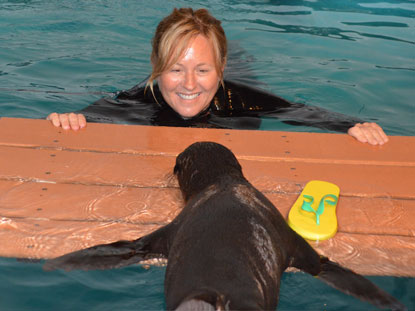 Not Just a Career but a Lifestyle
Not Just a Career but a Lifestyle
Individuals who enter the animal care field definitely do not do so for the money. They do so for their passion and commitment to providing quality care to animals and to provide the public with valuable conservation education. When you choose to enter this field, you don’t just choose a career; you welcome the lifestyle as well.
Animal care professionals never truly experience a 9-5 job.When you care for animals, you are on their schedule which often includes working holidays, weekends and extended hours.If the animals are in need, the staff will be there to provide care no matter the time of day or time of year. The animals depend on their caretakers for all of their needs.
Salaries for animal care positions generally start near minimum wage with the opportunity to earn more as your experience increases. Pay scales and benefits differ greatly between positions, locations and organizations. Make sure you understand the type of life a career in the animal care field will provide and always remember the great rewards involved!
FAQs
What is a typical day of a marine mammal trainer?
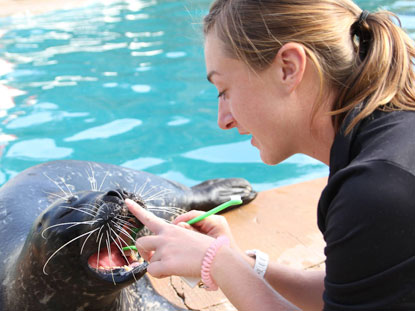
As the primary care takers, trainers are responsible for each animal’s mental and physical health. Trainers perform every aspect of animal care from water quality to diet preparation to facility sanitation. Each day may include cleaning tasks, training sessions, public presentations, interactive programs and enrichment time for the animals. In between these physical tasks, trainers also complete behavior records on each animal’s progress with training and husbandry goals to ultimately provide the best care possible. It sounds easy but these tasks can be physically and mentally challenging, and so rewarding at the same time!
What do I need to do to pursue a career in animal training?
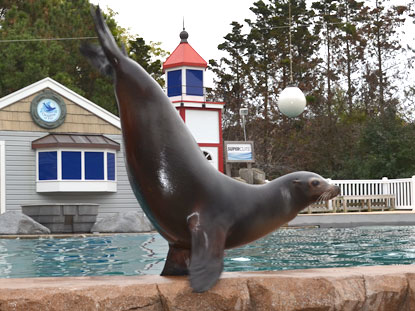
You have got to start somewhere! It’s important to pursue the proper education that will help you prepare for a career in the animal care field. No matter your age or grade level, there are always steps you can take to help gain the knowledge and experience necessary for a successful career.
Earn experience through volunteer positions, internships and job experience. In some cases, you may have to volunteer for several years before a job opportunity becomes available. Be patient, commit to learning from your experience and dedicate yourself to the field. Competition is high and jobs are limited, so start building your resume early to help set you apart from future competitors.
Always remember that the animal care and training field consists of a tight-knit circle of professionals. It is important that you are able to develop a reputation as a hardworking, reliable individual and work to make a fantastic impression. Recommendations are highly regarded--your dedication and commitment to your professional will shine through to your supervisors, potential employers and may just help you obtain a paid position.
- High School Students - Focus your studies in math and sciences. Strength in these subjects will prepare you for college coursework and help you earn a degree. Pursue volunteer or job experience at your local animal shelter, pet store, veterinary office or doggy daycare to start learning about animal behavior and care. Even entry level positions at a local zoo or aquarium as a docent, concession worker or customer service representative can help you get your foot in the door. Many colleges look at volunteer and work experience when considering applicants so it is important that you make a good impression.
- Undergraduate Students - Pursue a degree in a science or education-related field. Most animal care positions are filled by individuals with degrees in biology, animal behavior, marine biology, zoology, psychology, environmental science, education or a related field.
- Intern - Apply to positions offered by organizations or government agencies to gain professional hands-on experience in animal care. Supervisors are often asked to provide professional references for interns who have worked for them so be sure to work hard and make a great impression. Many colleges work with marine mammal facilities allowing you to gain hands-on experience while also earning college credit. Although most internships in the field are unpaid, they offer valuable resume-building opportunities.
- Volunteer - Volunteer with a local zoo, aquarium, animal shelter, veterinary clinic or nature center. These positions will provide you with great experience and demonstrates your commitment to community service. Volunteering your time communicates that you're serious about your commitment to pursuing a career in the animal care field. This field can be difficult to break into so it is important to get your foot in the door. It may take several years of experience-building before a job opportunity arises. Work hard to develop a reputation for being an eager, cooperative, dedicated person, and your volunteer effort may help you get a job in the future
Certifications
If you are interested in pursuing a career in the marine mammal field, it’s advantageous to obtain a SCUBA certification and maintain current certifications in First Aid and CPR. These certifications are often required for paid positions and make you more marketable when you are applying for any position within the field.
- SCUBA Certification - PADI (Professional Association of Divining Instructors) SCUBA certifications are available in a variety of course options from traditional classroom instruction to university coursework to online versions. All courses require confined (pool) dives to teach and master diving skills and open water skills testing for certification. Traditionally, the fees average around $350 for the course and certification. Some companies allow you to rent SCUBA equipment but most require you to at least purchase a mask, fins, booties and a snorkel to use in class. For more information please visit http://www.padi.com/scuba/.
- First Aid and CPR Certifications - Basic first aid and CPR certifications will prepare you for any emergency situation. These skills will be useful in your personal life and in most professional settings. For more information please follow these links for more information:
- American Red Cross http://www.redcross.org
- American Heart Association www.americanheart.org

Network, Network, Network!
Get involved with professional organizations related to the animal care field. Many organizations offer student-level memberships that provide members with newsletters, workshops and website information that will help build your knowledge base and experience. Membership also gives you chance to form relationships with professionals in the field that may help guide your career path or help you get your foot in the door.
Be sure to research the organizations you support and confirm that they are reputable sources within the animal care community. Future employers look for applicants who have done their homework and those who can speak specifically about the organization they are pursuing.
International Marine Animal Trainers’ Association www.imata.org
Association of Zoos and Aquariums: www.aza.org
Animal Behavior Management Alliance: www.theabma.org
Alliance of Marine Mammal Parks and Aquariums: www.ammpa.org
Want to learn more? Check out a more complete list of affiliated zoos and organizations that provide the opportunity to learn and network with others interested in the field.
What careers are available?
There are many types of careers available in the animal care field. Click the link below to learn more about career qualifications, responsibilities and salaries.
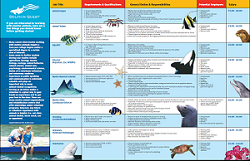
Resource Library
Does Ocean Connections offer internship and volunteer opportunities? --- Yes we do!

Download our intern and volunteer flyer to learn more!
Check out our Career Opportunities and find out if an animal care career is right for you!





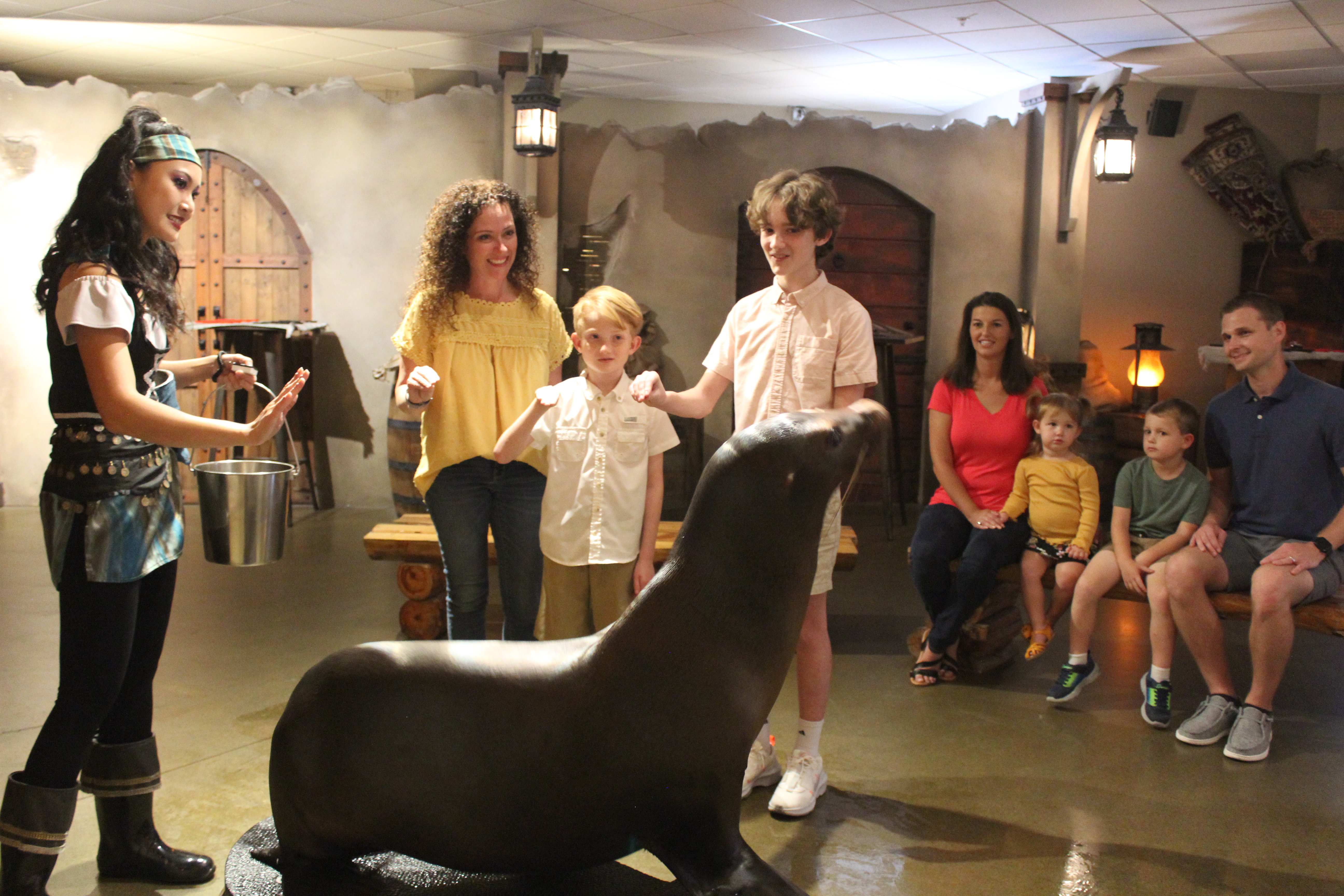 Animal Encounter
Animal Encounter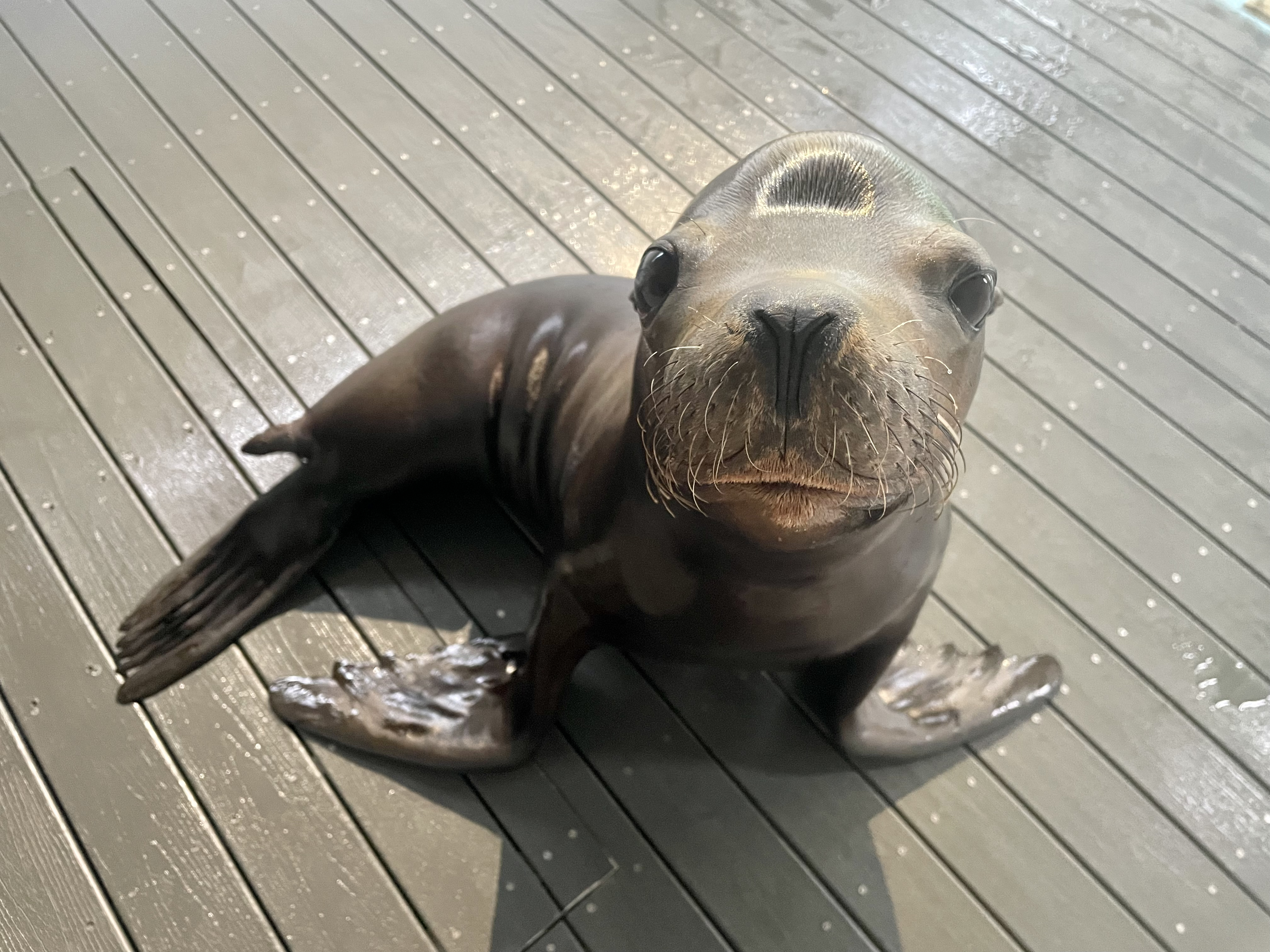 Our Locations
Our Locations
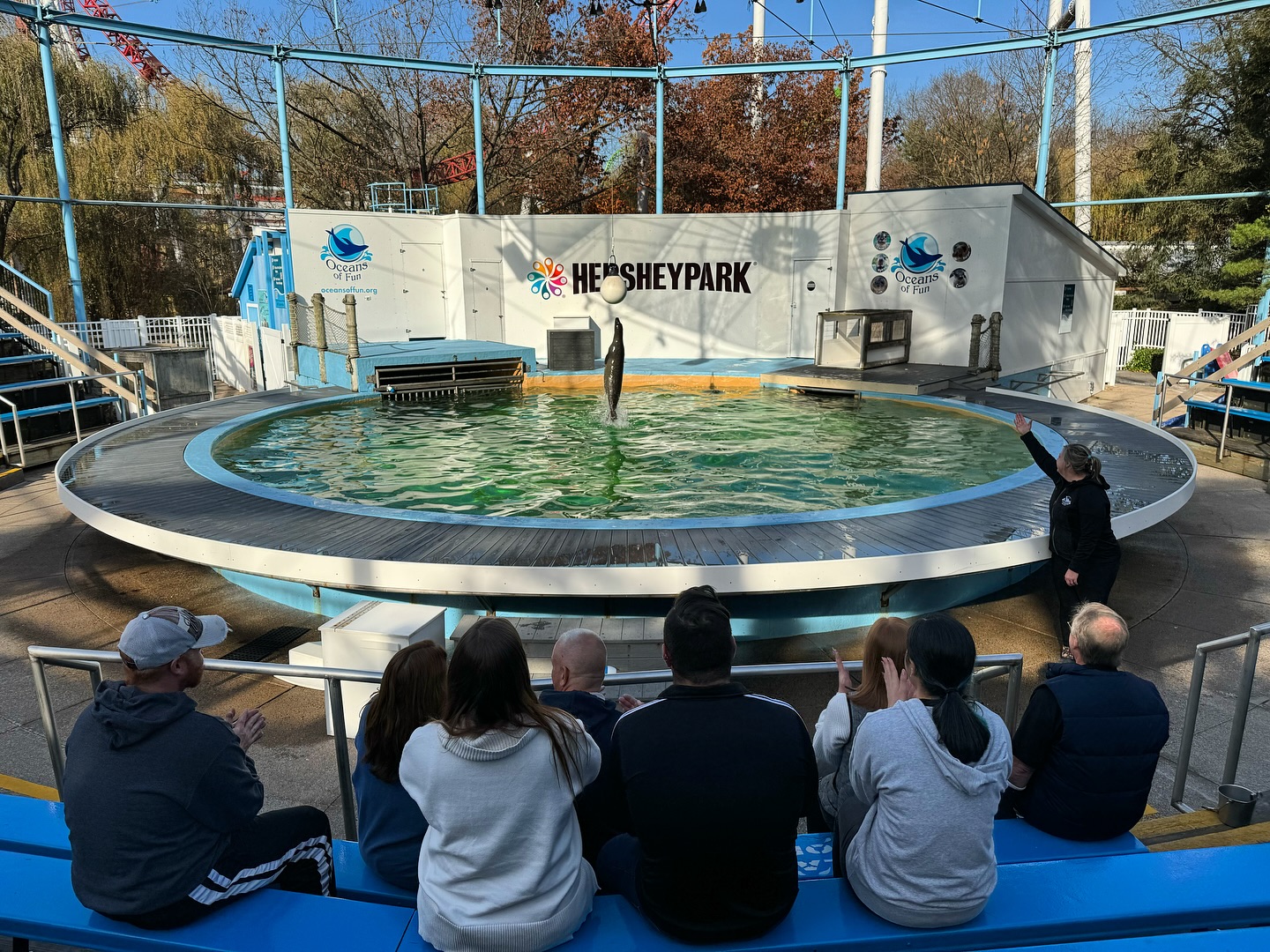 Family Fun
Family Fun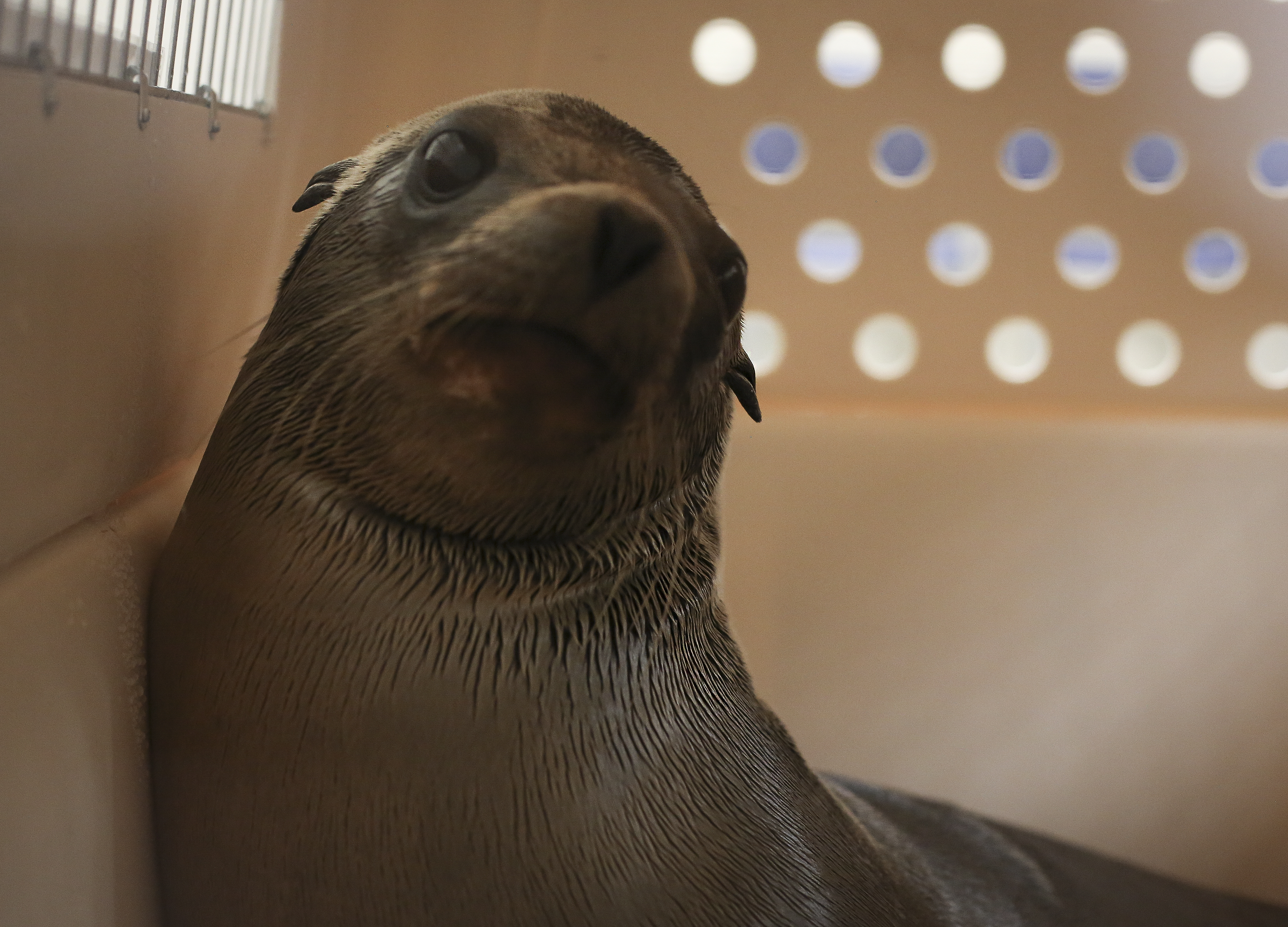
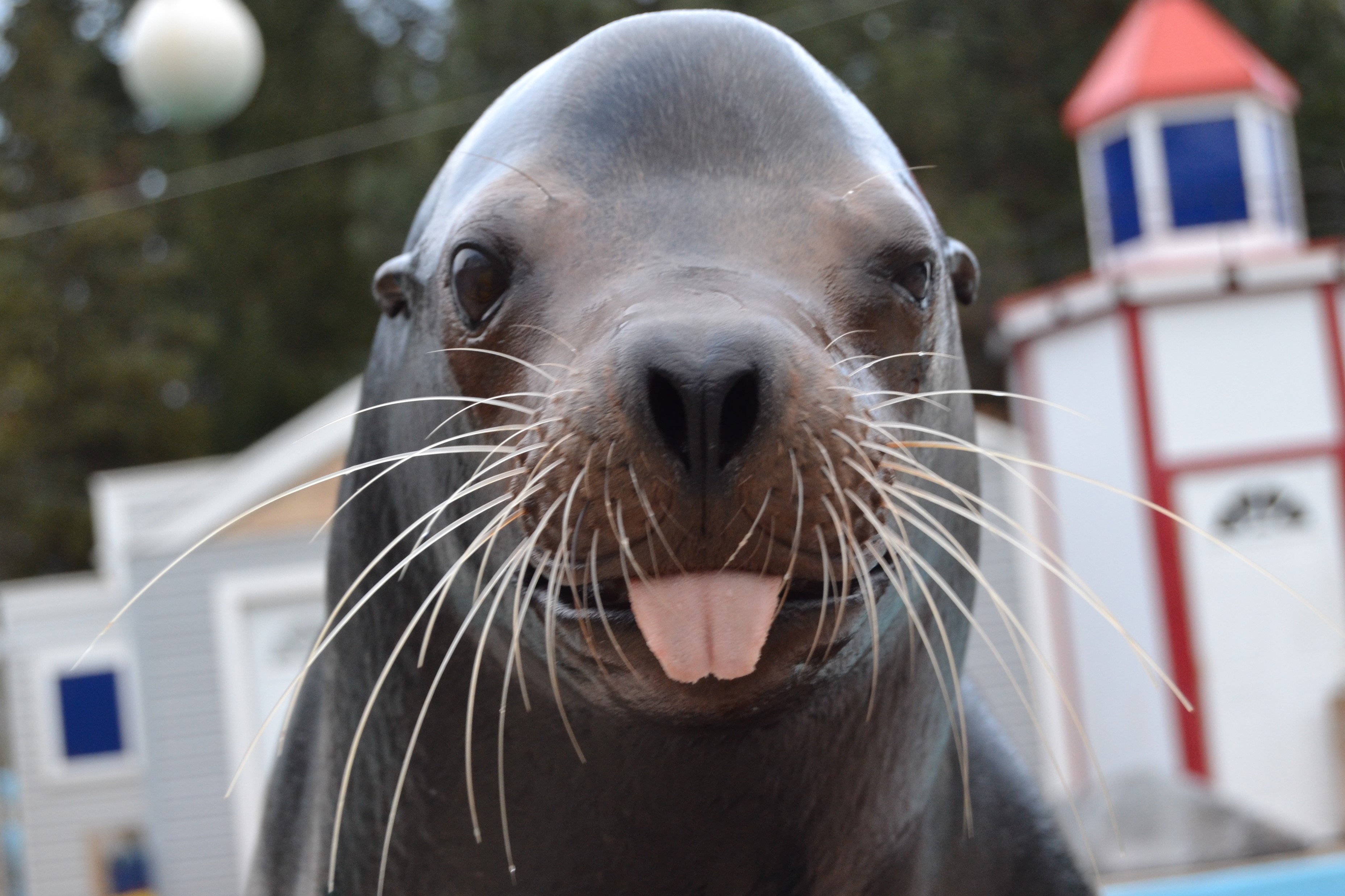
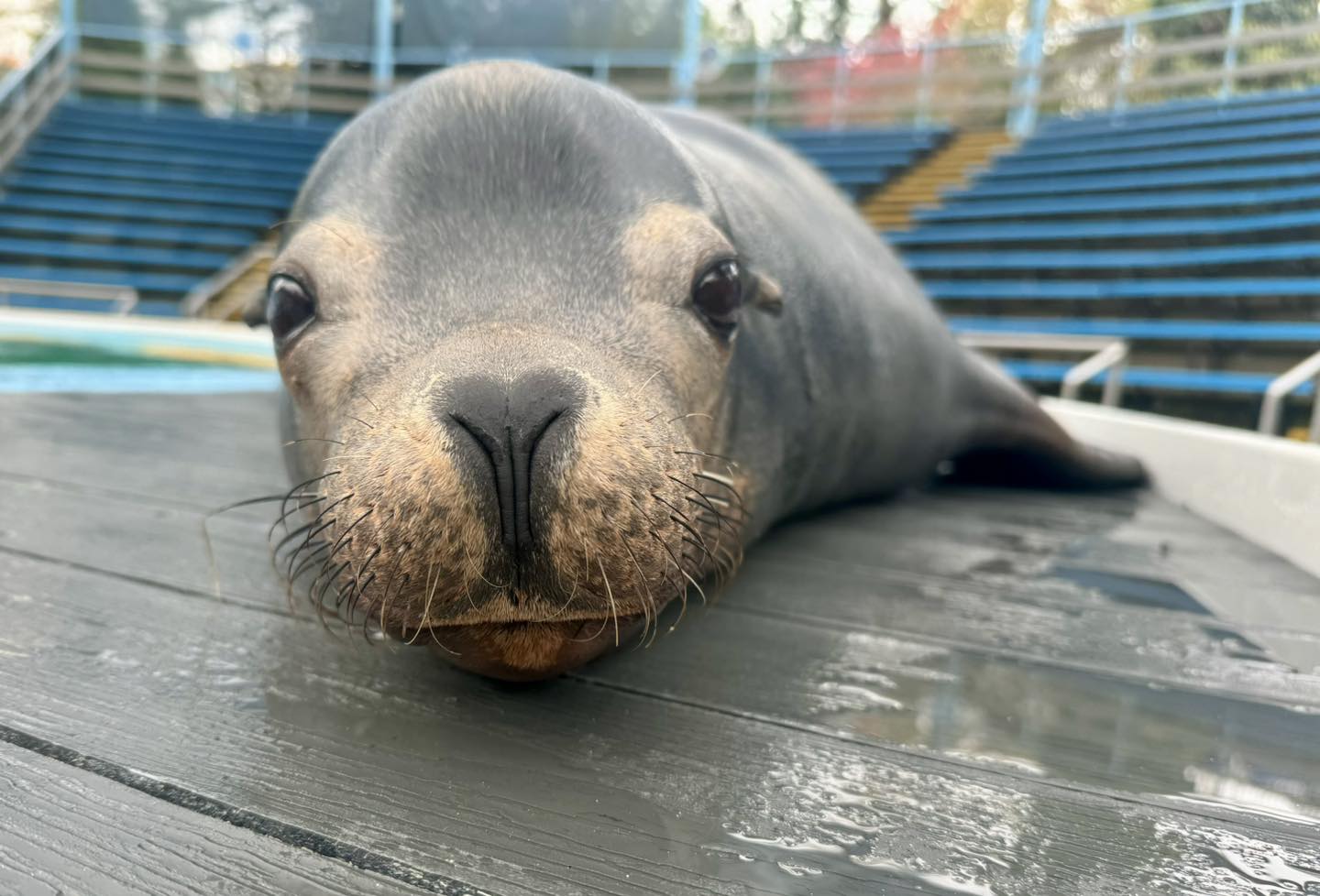 Meet Ripley!
Meet Ripley!
